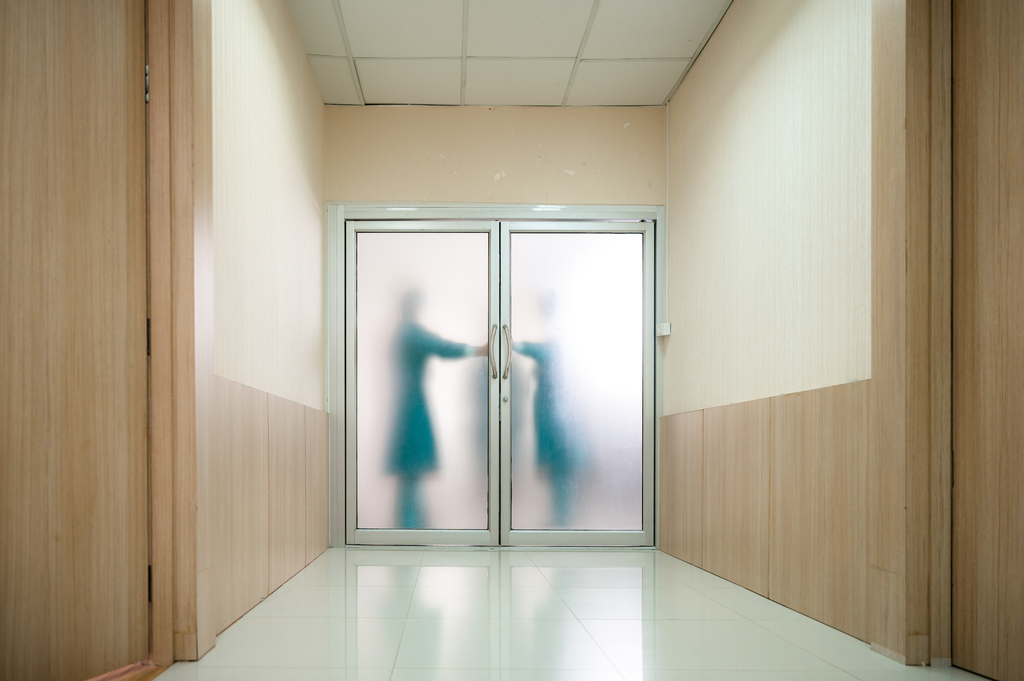What Is After Hospital Care?
After hospital care, or intermediate care, is a proactive service delivered to people transitioning from the hospital to the comfort of their homes. It is a crucial phase of the recovery process, ensuring a smooth transition from the hospital to the person’s own home and community.
This type of care includes various services, such as medication management, personal care assistance, emotional support, and coordination with healthcare providers on how to best support the person in adjusting to the new environment. Dedicated clinicians follow the personalised treatment plan and help facilitate the transition towards independence. After hospital care typically lasts between 1-2 weeks.
Reablement
Another form of after hospital care is reablement. This type of care promotes a person-centred approach within health and social care that can help individuals learn, unlearn, or re-learn the necessary skills to be able to engage in activities that are devoted to the person’s interests.
Reablement is commonly provided in the person’s own home or care home. It is a goal-focused intervention that involves intensive, time-limited assessment and a therapeutic approach. It involves a process of identifying and empowering a person’s own strengths and abilities by shifting the focus on what they can safely do instead of what they can’t do.
Reablement is a core element of intermediate care that:
- Promotes faster recovery
- Prevents unnecessary premature admissions to long-term care or acute hospital admissions
- Focuses on independent living and reduces or eliminates the overall need for an ongoing care package
- Promotes and supports timely discharge from the hospital
The duration of the service depends on the process of recovery. If an individual requires extended support, the treatment plan is assessed for extended care or adjusted to long-term care.
After Hospital Care Services
After hospital care services are designed to facilitate a successful transition of individuals from hospitals back to the individual’s home or community environment while promoting recovery and overall well-being.
Examples of after-hospital care services include:
- Medical supervision – regular monitoring of an individual’s health status, including medication management, wound care, vital sign checks, and coordination with healthcare professionals to ensure proper recovery
- Rehabilitation – services such as physical therapy, occupational therapy, and speech therapy to improve mobility, enhance strength and coordination
- Personal care assistance – everyday activities, such as bathing, dressing, grooming, toileting, and feeding, ensuring individuals can maintain their hygiene and well-being
- Emotional support – counselling and mental health resources to help individuals manage any difficulties they may be facing
- Care coordination – ensuring seamless communication, follow-up appointments and helping individuals navigate the healthcare system effectively
- Medication management – assistance with medication management, including medication reminders, medication administering education about medication usage, and prevention of medication errors
- Home safety evaluation – identifying and addressing potential hazards or modifications needed to create a safe and accessible living environment for the individual
- Nutritional support – nutritional assessments, dietary counselling, and meal planning assistance
- Transportation assistance – medical appointments, therapy sessions, and other necessary destinations
- Social and community integration – facilitating social engagements, connecting individuals with support groups, and encouraging participation in community programs
Multidisciplinary Care Team
A multidisciplinary care team delivers tailored support services to individuals who require after-hospital care. This team assesses the care and adjusts the support services according to individual needs.
A multidisciplinary care team includes the following professionals:
- District nurse
- Occupational therapist
- Physiotherapist
- Speech and language therapist
- Social worker
- General Practitioner (GP)
- Positive Behaviour Support (PBS) team
By bringing together a dedicated team of professionals, after hospital care addresses both the physical and emotional aspects of an individual’s post-hospital journey. At Nurseline Community Services, our goal is to enable individuals to regain their independence, improve their quality of life, and promote their overall well-being during the critical phase of recovery.
Who Should Consider After Hospital Care?
Choosing after-hospital care can be a great way to promote your recovery and well-being in the comfort of your own home. It is highly recommended for those who need further support after a hospital stay.
The following are medical challenges that may require after hospital care:
- Physical trauma
- Bone fractures
- Burns
- Amputations
- Stroke
- Post-surgery
Additionally, anyone recently discharged from a hospital and requires additional support, whether it is rehabilitative, emotional, or logistical, should consider after hospital care to ensure a smooth and effective transition back to their home environment and support their recovery journey.

The Goal of After Hospital Care
Navigating care can often be challenging for the individual and their family.
After hospital care aims to overcome challenges to help individuals build an independent and meaningful life, the safe transition of the person from the hospital to the home and community environment is vital for success. Continuity of care is ensured through coordination with healthcare providers, specialists, and therapists. The goal of after hospital care is for individuals to improve their well-being, confidence, and independence.
Benefits of After Hospital Care
Proactive support provided in the comfort of an individual’s home is essential for promoting a fast and effective recovery. After hospital care is provided by a reliable and dedicated team, the clinicians are trained to meet the unique needs of each individual, ensuring they receive the highest quality of care.
After hospital care provides a range of services designed to build independence. Below is an account of some of the benefits after hospital care offers.
Care At Home
Care at home fosters a sense of comfort and security and minimises the stress and disruption often associated with transitioning to unfamiliar care settings. The care team works collaboratively with the individual to support their recovery and rehabilitation, helping them regain their functional abilities and confidence in a familiar environment.
Well-being Adjustments
Well-being adjustments are part of a personalised treatment plan. Some adjustments include transport around the home and local community, wheelchair access, and home modifications around everyday tasks.
Help With Household Activities
Clinicians can help with household activities and help people complete daily activities, contributing significantly to a person’s mental and emotional well-being.
Examples of household activities that support teams help with include the following:
- Cleaning
- Laundry
- Cooking, meal preparation and nutrition
- Gardening
- Grocery shopping
Tailored Care
Tailored care is person-centric and focused on an individual’s needs and preferences. Multidisciplinary teams are responsible for implementing and creating after hospital care and support plans.
Multidisciplinary teams can also address tailored care around the following:
- Nursing services
- Personal care assistance
- Learning disability support
- Mental health support
Why Are People Choosing Home Care Instead of Prolonged Hospital Stay?
More individuals are choosing home care over prolonged hospital stays due to several key factors. One factor is the comfort and familiarity of a person’s home, which positively impacts well-being and mental health.
Additionally, home care promotes an enhanced quality of life by allowing individuals to maintain higher levels of independence and autonomy compared to a hospital environment. People have greater control over their daily routines, choices, and preferences, improving overall satisfaction and quality of life. Since clinicians focus on unique requirements, offering one-on-one support and adapting the care approach as necessary, this personalised care leads to better outcomes and a more positive care experience.
Home care reduces the risk of infections compared to hospitals. By receiving care at home, individuals minimise exposure to potential infections and lower the chances of hospital-acquired infections. Also, home care is often more cost-effective than prolonged hospital stays, providing convenience and flexibility. Individuals can schedule care according to their specific needs, allowing them to easily maintain their daily routines and accommodate personal or work-related commitments.
Involving individuals in their own community is also a benefit that people get from choosing home care. Making friends, socialising and being a proactive member of the community is something that we encourage and support. It gives people a sense of belonging and accomplishment, which builds confidence.
How Nurseline Community Services Can Help You After Hospital Discharge
At Nurseline Community Services, we provide proactive and person-centric care to foster independence and improve the quality of life for the people we serve.
Our clinicians collaborate with multidisciplinary teams, which is crucial in delivering personalised and high-quality after hospital care. We care for and respect every person’s dignity and rights and ensure care plans are personalised to each individual’s needs and preferences. We believe those rights are fully met when a person feels safe and comfortable while receiving tailored, compassionate care.
At Nurseline Community Services, we believe every person we serve can achieve their recovery goals and lead a more independent life.
For more information about our proactive services, contact our Bristol, Birmingham, and Gloucester offices.





